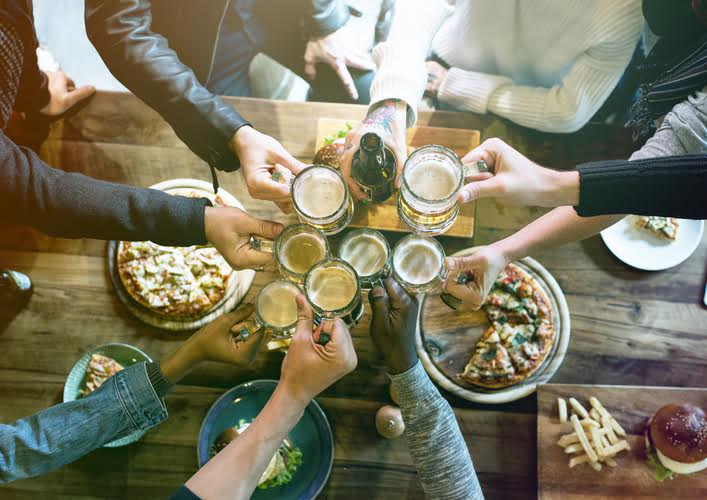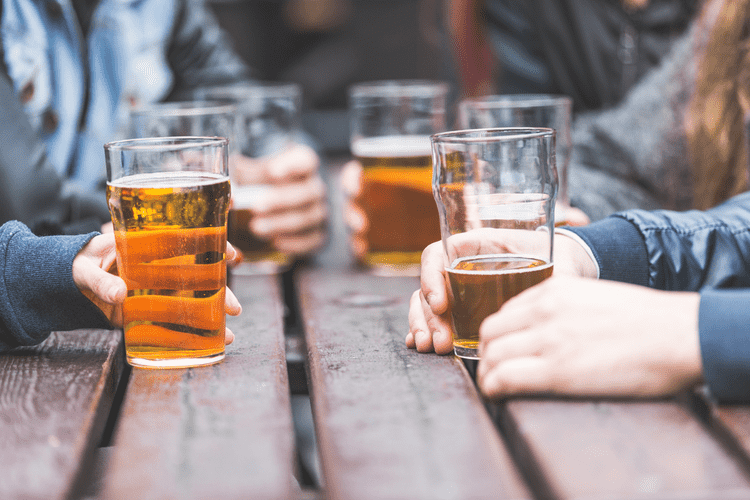Alcohol-induced panic attacks are typically triggered by the body’s heightened anxiety response during withdrawal. Individuals with pre-existing anxiety disorders may be more prone to panic attacks. Sleep disturbances, including insomnia and poor sleep quality, affect 60-80% of individuals with alcohol-induced anxiety disorder. While alcohol initially acts as a sedative, helping people fall asleep faster, it disrupts the sleep cycle, particularly REM sleep, leading to fragmented and non-restorative sleep. Sleep disturbances are more common during withdrawal and can persist for weeks or months after stopping alcohol consumption.

Pharmacotherapy for Anxiety Disorders
- But trying to relax with a drink or two may not give you the long-term anxiety relief you want.
- A key challenge to applying a comparative perspective across disciplines and time is the use of unique and evolving terminology and definitions for similar phenomena.
- Finally, people who abuse or are dependent on alcohol are also at risk for abusing or becoming dependent on benzodiazepines.
- Finally, the assumption that common areas of construct space exist across the disciplines of psychiatry, psychology, and neuroscience is open to debate.
The following quiz is called the AUDIT which stands for Alcohol Use Disorder Identification Test. It’s what medical professionals use to assess the risk level of their patients for alcohol dependence. The more someone drinks, the harder the brain must work to restore balance, intensifying anxiety symptoms as the alcohol wears off. The brain adjusts Sober living home to the large presence of alcohol by ramping up the production of excitatory neurotransmitters in the body.
- High-income countries often have greater access to mental health services and public health resources, which can mediate the impact of anxiety disorders and alcohol use.
- In conclusion, the relationship between anxiety and alcohol is complex and bidirectional.
- Table 1 summarises high-income countries’ analysis of anxiety about wine, beer, and spirit from the Granger causality test under a continental analysis.
- Third, the investigation allowed the researchers to examine how all four variables function in diverse countries across six continents.
Using alcohol to self-medicate social anxiety can backfire.
- You also can screen for depression, anxiety, PTSD, and other substance use disorders using a number of brief, psychometrically validated screening tools, which are described in a 2018 systematic review 7 and which may be available in your electronic health record system.
- A better understanding of the heterogeneity within this population will inform more personalized treatment approaches and might ultimately improve treatment response.
- The bigger problems start when that anxiety pops up even when alcohol isn’t involved, which starts to happen if you binge for long enough.
However, the analysis also showed virtually no relationship between risk for alcohol dependence and the unique components of those diagnoses. These https://clickitandlistit.com/how-to-de-stress-after-work-10-calming-ways-to/ findings are inconsistent with the idea that each anxiety disorder has a unique association with the risk for alcohol misuse. Instead, the results suggest that all anxiety and mood disorders contribute to general negative emotionality, which, in turn, correlates with the risk for alcohol dependence.
However, restricting attention to a single diagnosis and its relationship to alcohol misuse does not align with more recent research. On the one hand, mental health problems such as anxiety are more likely to be self-medicated through readily available substances such as wine, beer, and spirits. However, self-reported anxiety rates in heavy drinkers may not accurately reflect actual anxiety levels.
How does alcohol affect anxiety medication?
It is, therefore, not surprising that more than one out of every three alcoholics has experienced episodes of intense depression and/or severe anxiety (Cox et al. 1990; Wilson 1988). These psychological conditions are often intense enough to interfere with life functioning, and the symptoms are often recognized by physicians and other health care providers as serious enough to require treatment. When depressed or anxious alcohol-dependent people are asked their opinions about cause and effect, they often reply that they believe they drink in order to cope with their symptoms of sadness or nervousness. While the occasional glass of red wine can relieve social anxiety and other physical symptoms, you should seek healthier and more effective forms of management for depressive disorders.

Alcohol affects the GABA, which, in small doses, can make someone feel relaxed. For example, Cloninger’s type II was essentially limited to men, while in the Babor et al. study (29), men were equally classified as type A or type B, but women were slightly more frequently classified as type A. Moreover, scientific associations’ Web pages were consulted for works on scientific evidence in this field of knowledge, and the names and “URLs” are mentioned in Table 1. After a thorough manual selection process, the total was reduced to 21, having discarded publications that did not fulfill the RCT criteria or did not cover AnxD and AUD. If you or someone you love is experiencing alcohol related anxiety, there are ways to cope.
In fact, alcohol’s effects can be similar to those of antianxiety medications. Early diagnosis and treatment are critical in preventing the condition from worsening. If you’re struggling with anxiety related to alcohol use, our telemedicine practice can provide personalized care and support. Don’t wait—reach out to us today to start your journey toward better mental health.
Studies have shown that people with alcohol dependence have a 2.6 times higher risk for developing anxiety disorders than those who do not have alcohol dependence. Finally, the etiology, course, and treatment of both AUD and depression differ substantially by gender. Women have been underrepresented in much of the research on co-occurring AUD and depressive disorders, particularly in the early research on this topic. The research needs more representation of women to increase understanding of the sex differences and to better characterize the mechanisms underlying women’s heightened vulnerability for depressive disorders. These populations experience disparities in access to care for AUD and depressive disorders but are underrepresented in studies of these disorders.
The Best Antidepressants for Alcoholics: A Comprehensive Guide to Dual Diagnosis Treatment
Despite finding that rates of alcohol abuse or dependence were relatively high in both samples, the researchers saw no evidence that preexisting depressive or anxiety disorders occurred at higher rates among those subjects who later developed alcoholism. Additionally, alcohol can worsen underlying unresolved mental health disorders, like post-traumatic stress disorder and eating disorders, causing them to resurface and interfere with how you function at home, work, and other areas. In addition, it can worsen anxiety because it can lead to the development of new anxiety disorders or additional mental health disorders. You may have generalized anxiety when you begin drinking and, over time, develop panic attacks or social anxiety. Buspirone (77, 81, 82), gabapentine (84, 85), and pregabaline (87–89) have shown their efficacy in patients with comorbid AnxD–AUD, but potential abuse of gabapentine and pregabaline should be taken into account (90, 91). A study (86) shows that Topiramate could improve anxiety symptoms in alcohol-dependent patients, while some benefits with naltrexone have been described (92, 93).
First, heavy alcohol use may increase the likelihood of suffering traumatic events, such as violence and assault. Second, AUD may undermine a person’s psychological mechanisms to cope with traumatic events, by disrupting arousal, sleep, and cognition, thus increasing the likelihood of developing PTSD. Third, AUD and PTSD have shared risk factors, such as prior depressive symptoms and significant adverse childhood events.
This later stage of addiction marks a shift from impulsive use driven by positive reinforcement to compulsive use driven by negative reinforcement. In this stage, compulsive substance use is aimed, in part, at decreasing the negative affect caused or aggravated does alcohol give you anxiety by the allostatic reset in the brain’s stress and mood systems. A key challenge to applying a comparative perspective across disciplines and time is the use of unique and evolving terminology and definitions for similar phenomena.